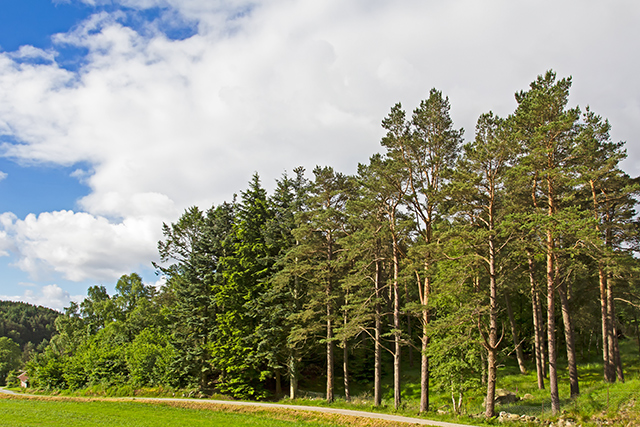The U.S. Forest Service is planning to remove dead ponderosa pine trees along Highway 20; officials suspect the trees died because of herbicides
06/12/2018 / By Edsel Cook

In yet another example of the dangers of synthetic herbicides, hundreds of ponderosa pine trees that line U.S. Highway 20 have died due to a weed killer. An article in The Bend Bulletin states that the U.S. Forest Service might only be able to start chopping down the standing but dead trees in 2019.
The federal agency is getting public feedback on a tree removal plan that will cover the 12-mile segment that runs through the Deschutes National Forest in Central Oregon.
State forestry officials suspect the ill-named herbicide Perspective was responsible. In the past few years, the Oregon Department of Transportation (ODOT) hired contractors to spray the weed killer on either side of the highway to get rid of flammable roadside plants.
Perspective turned out to be deadly to more than 1,000 nearby trees. This included many mature ponderosa pines, which can grow to heights of more than 200 feet (61 meters).
If these dead trees topple the wrong way, they could fall on Highway 20, which is used by thousands of cars each day. (Related: Corporate retaliation: Monsanto is trying to take down civic group that warned about health risks of glyphosate herbicide.)
Herbicide used to control roadside weeds kills hundreds of trees
Central Oregon is plagued by dry grass fires started by sparks from idling vehicles. The ODOT entered an agreement with the Forest Service to remove other roadside vegetation on roads that go through the Deschutes National Park.
The ODOT first applied Perspective to Highway 20’s roadsides in 2013. At the time, the herbicide was still cleared for use on forestland. It was also considered safe for use near ponderosa pines.
The Forest Service has stopped using Perspective in Oregon and Washington. The weed killer’s active ingredient, aminocyclopyrachlor, can affect evergreen trees such as ponderosa pines.
A spokesperson for Jefferson County explained that the county’s public works agency takes care of weed maintenance for other governments in exchange for other services. The agency was contracted by the Forest Service and told to use Perspective for the job in the Deschutes National Forest.
Jefferson County has previously used the herbicide on other roadsides in Central Oregon with no apparent ill effect. However, the aforementioned section of Highway 20 is located close to the ponderosa pines.
Furthermore, the dry winter of 2014 kept the herbicide from draining into the soil. This worsened Perspective’s negative effects on the trees.
Agencies might only be able to cut down dead trees in 2019
The Forest Service realized something was wrong that same year. Employees spotted symptoms like browning foliage, unnatural growth in the stems, and discolored crowns.
Environmental planners believe that up to 1,000 trees in the Deschutes National Forest have been poisoned. Officials say the effects of aminocyclopyrachlor cannot be reversed.
A ponderosa pine that has been dead for five years will have rotted out so much that it is likely to fall over. ODOT has flagged dead but standing trees within 150 feet (30 meters) of roadways as dangerous.
Officials of ODOT and the Forest Service discussed the crisis in a December 2015 meeting. The state transportation department can cut down individual trees that threaten roadways.
However, a systematic tree cutting program must go through the Forest Service. Trees cut down by the federal agency will either go to the forest products industry or be used to restore streams and manage habitats.
The two agencies have agreed to implement the tree cutting program in either spring or fall. Highway 20 sees heavy use during the summer.
The ODOT believes they can start chopping down dead ponderosa pines in October 2018. The Forest Service thinks they will have to wait until the spring of 2019.
Find out how weed killers like Perspective can directly affect human health by visiting Dicamba.news.
Sources include:
Tagged Under: aminocyclopyrachlor, Forest Service, herbicides, highways, Oregon, synthetic herbicide, toxic herbicides, U.S. Forest Service, weed killers, weeds




















